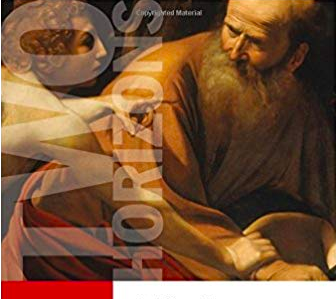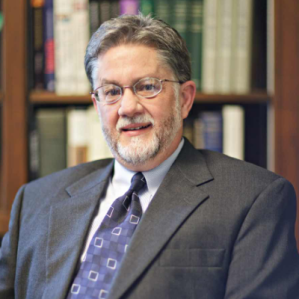Amazon Affiliate Disclosure: I receive a percentage of revenue if you buy from Amazon on my blog.

Romans 2.25-29, “For circumcision indeed is of value if you obey the law, but if you break the law, your circumcision becomes uncircumcision. So, if a man who is uncircumcised keeps the precepts of the law, will not his uncircumcision be regarded as circumcision? Then he who is physically uncircumcised but keeps the law will condemn you who have the written code and circumcision but break the law. For no one is a Jew who is merely one outwardly, nor is circumcision outward and physical. But a Jew is one inwardly, and circumcision is a matter of the heart, by the Spirit, not by the letter.”
The flow of Romans 2 so far:
vv. 1-5: *Unrepentant Jews criticize gentiles for their sins while committing those same sins.
vv. 6-11: The impartial God “will repay each person according to his or her works” (Schreiner’s translation, 121).
v. 12: All will be judged by a certain standard: gentiles by moral norms and Jews by the law.
v. 13: The doers of the law will be justified.
vv. 14-16: Who exemplifies doing the law? Not the sinful, *unrepentant Jews, but the Christian gentiles. They have the law written on their heart (and they fulfill the law by having God’s Spirit; Rom 8.5)
vv. 17-24: Paul tells the Jews that their sins against God take away any advantages they have over the gentiles by having God’s law. What’s the use in having the law if you don’t keep it?
In Romans 2.25-29, Paul argues that circumcision depends on keeping the law, something that (most of) the Jews (see Rom 9.1-6) don’t do, but the Christian Gentiles do!
Which Jews is Paul Talking About?
First, I have to reiterate which Jews Paul is rebuking. Paul wrote to the church in Rome which was made up of Christian Jews and gentiles. Paul presents his gospel to them in the form of a debate as if he were speaking to unbelieving Jews (arguing from the Scriptures that Jesus is the Messiah who fulfills Scripture). So the Jews Paul speaks of in Romans 2 are *unrepentant Jews (2.5) who not only transgress God’s law without repentance, they disregard Christ as the Messiah.
Flow of Thought
Pagan gentiles will experience God’s wrath (Rom 1.18-32). Even some of the physically circumcised will experience God’s wrath unless they keep the law (25a). If a physically circumcised Jew does not keep the law, they will experience God’s wrath too. They may as well be a pagan gentile (25b). So the uncircumcised gentile who keeps God’s law will be counted as circumcised before God and will become a part of God’s people (26). But how can this be? It is so because “Jewishness and true circumcision are not outward matters,” as was seen in the Old Testament (145).
Deuteronomy 10:16: Circumcise therefore the foreskin of your heart, and be no longer stubborn.
Deuteronomy 30:6: And the Lord your God will circumcise your heart and the heart of your offspring, so that you will love the Lord your God with all your heart and with all your soul, that you may live. (see Jeremiah 4.4).
Even circumcised Jews could be stubborn (Gal 5.2). One’s heart must be circumcised. So even though the Jews possess the law and all its advantages, if they transgress the law and do not repent there will be judgment. The Christian gentile, on the other hand, obeys. His obedience comes from his faith in Christ, and his obedience means his “uncircumcision” is “counted as circumcision” (149). Schreiner says, “To be considered as circumcised means that the gentile who keeps the commandments is part of God’s people, the redeemed community” (149).
Flipping the Script
Paul says that it is not enough to be a circumcised, law-possessing Jew because the law needed to be kept (and the Jews to whom he refers break the law). What it really means to be a Jew is to be one “inwardly,” that is, to have a circumcised heart. Paul says that even the gentiles who have faith in Christ have the required circumcised hearts that makes them covenant members and sons of Abraham (Rom 9.7-8; Gal 3.29). Their hearts are circumcised by the Spirit (Jer 31.31-34), not by the letter.
Ezekiel 36.26-27 says something similar to the Jeremiah 31 and Deuteronomy 30.6 texts:
26 [God] will give you a new heart and put a new spirit within you; I will remove your heart of stone and give you a heart of flesh.
27 I will place my Spirit within you and cause you to follow my statutes and carefully observe my ordinances.
Schreiner says, “Although the law is glorious [2 Cor 3.7-11], it does not provide any ability to obey it. Thus both the ‘letter’ and circumcision’ are benefits for the Jews; the problem is that without the Spirit these gifts do not produce righteousness” (151). Through the Christ’s death, resurrection, and inauguration of the new covenant, those who believe in Christ come into the new covenant and receive the Holy Spirit. The Spirit gives us hearts of flesh, circumcises them, and causes us to obey God’s commands. We won’t obey perfectly until the end, but we are forgiven in Christ.
No one will be justified by the works of the law?
But doesn’t Paul say in Romans 3.20 that “no one will be justified in his sight by the works of the law”? Yes, but Paul isn’t arguing that one can enter into a relationship with God by keeping the whole law. No one can keep the whole law perfectly. Only Christ could do that, and so those who believe in Christ are in union with him. Because they receive his Spirit, they fulfill the law by being in Christ. This is true for the Jew as much as it is for the gentile.
Why the Emphasis on Christian Gentiles?
Why does Paul emphasize that gentiles believe, are circumcised, are in the covenant, and are doers of the law? He’s trying to provoke the Jews to jealousy! Schreiner points out that Paul is foreshadowing his argument in Romans 11.11, 14:
11 I ask, then, have they stumbled so as to fall? Absolutely not! On the contrary, by their transgression, salvation has come to the Gentiles to make Israel jealous. 12 Now if their transgression brings riches for the world, and their failure riches for the Gentiles, how much more will their fullness bring!
13 Now I am speaking to you Gentiles. Insofar as I am an apostle to the Gentiles, I magnify my ministry, 14 if I might somehow make my own people jealous and save some of them.
“Paul hopes to provoke the Jews to jealousy and bring them within the blessings of the new covenant” (154).
*What if a Jew transgresses the law and repents? Schreiner says that “those who submit to circumcision to enter the covenant are under obligation to keep the rest of the law to gain salvation” (147).
Galatians 5.2-3:
2 Take note! I, Paul, am telling you that if you get yourselves circumcised, Christ will not benefit you at all.
3 Again I testify to every man who gets himself circumcised that he is obligated to do the entire law.
This doesn’t mean Old Testament saints had to keep the law perfectly. Sacrifices were provided when sin occurred. But after Christ’s atoning death and resurrection, there is no more provision for sin under the old covenant. Christ’s sacrifice annulled the old covenant and its sacrifices. For those who remain under the old covenant and thus apart from Christ, to be righteous means they must keep the whole law. But that is simply impossible. “The old covenant… does and cannot save” (147). Only by having the Spirit can one fulfill the law (Rom 8.4; 13.8, 10; Gal 5.14; 6.2).
Explore Schreiner’s Commentary..





















